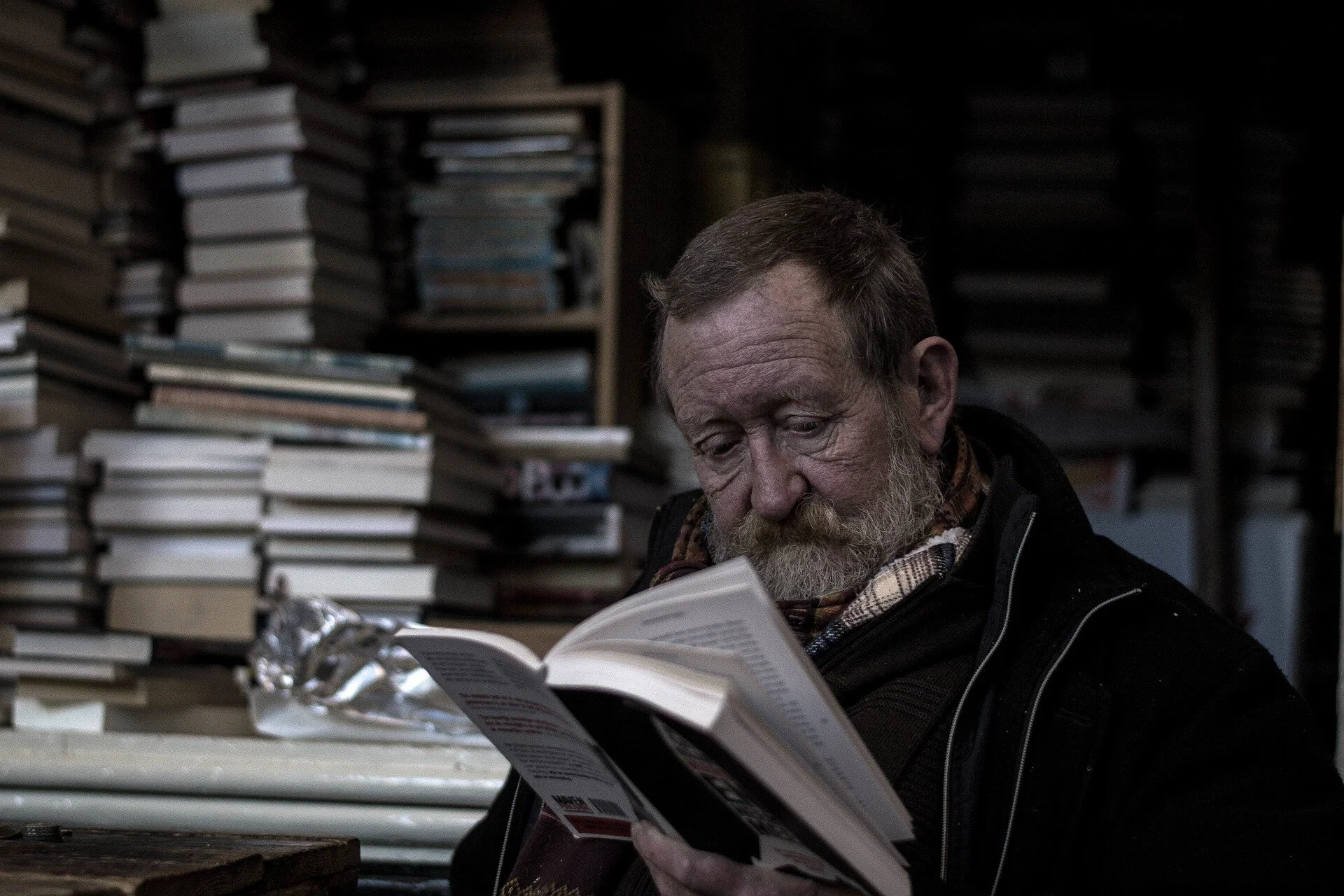My Favorite Things - Trust, Healing and Refreshment
Many of you who follow me are familiar with the Sound of Music, a musical drama staring Julie Andrews and Christopher Plummer set in pre WWII Austria. The film, one of my favorites, is an adaption of a stage musical by Rogers and Hammerstein. The movie is filled with uplifting musical numbers, beautiful scenery and budding romance. A number that has been with me since our choir sang it in junior high was My Favorite Things.
I had the idea come to me this morning that it might be fun and beneficial to share with you a number of my favorite passages of scripture. There is always a reason we have favorites. We might have a favorite ice cream, perfume or movie. Our faves are ones we like to revisit over and over.
I love to see a garden full of bright colorful flowers. Flower gardening is an activity I would like to do, but like so many things, I just don’t seem to get to it. That is okay. I can still enjoy the flowers at our local botanical gardens and adorning the front walkways and porches of many homes I drive by in the summer time.
Scripture is something that I desire to cultivate in my life. I am learning over and over how important and powerful God’s word is in my life, and that is why I want to share with you passages that I go back to on repeat. Just like the beautiful flowers we see in the warm weather, God’s word is a beautiful. It is meant to be looked at, mulled over and enjoyed. Yes, there are hard bits, bits that I remind me of my sin and my short comings, but God’s word is so much more than that. Let’s take a look.
“1 My son, do not forget my teaching,
But let your heart keep my commandments;
2 For length of days and years of life
And peace they will add to you.
3 Do not let kindness and truth leave you;
Bind them around your neck,
Write them on the tablet of your heart.
4 So you will find favor and good repute
In the sight of God and man.
5 Trust in the Lord with all your heart
And do not lean on your own understanding.
6 In all your ways acknowledge Him,
And He will make your paths straight.
7 Do not be wise in your own eyes;
Fear the Lord and turn away from evil.
8 It will be healing to your body
And refreshment to your bones.”
God’s word is meant to teach us. As I look at this portion of Proverbs 3 I know the author is King Solomon, David’s son by Bathsheba. Isn’t it amazing how God took a messy, sinful situation and turned it into something for His glory and honor? He is a master at that.
As Solomon penned these words we know that he was inspired by God, and it is written like a father speaking to his son. Whether Solomon had a son in mind when he penned these words, or he was relaying what God’s spirit inspired him regarding the Father - child relationship we have with God, I am not sure, but these words apply just as readily to us today as they did to people from long ago.
These verses could be said to be written like poetic couplets. Each set of two verses goes together with the first verse being a command, and the second verse being the benefit of obeying the command.
“1 My son, do not forget my teaching,
But let your heart keep my commandments;
2 For length of days and years of life
And peace they will add to you.”
The writer is telling his son to not forget the things he taught him. He even speaks to the issue of his heart. Why is it important for our hearts to keep God’s commandments? The simple truth is, head knowledge does not make us more godly or Christ like. It is when we allow the words of the Scriptures to permeate our hearts that we truly delve into the layers that are God.
Image by Ben Kerckx from Pixabay
The author gives the reason heart knowledge is so important, because it benefits us. “…length of days and years of life and peace they will add to you.” Our society pushes the idea of exercise and eating right to help us live longer, but that is not the only piece of our health puzzle. Living our lives for God in obedience to, and in love with our Lord will benefit us in more ways than we can even understand.
“3 Do not let kindness and truth leave you;
Bind them around your neck,
Write them on the tablet of your heart.
4 So you will find favor and good repute
In the sight of God and man.”
We hear so much about being kind these days. We see the phrase, “Be kind” written on signs in front of schools, on tee shirts and other apparel and we are constantly telling our children and grand children to be kind. The idea of kindness isn’t new and obviously, if Solomon felt it was necessary to mention, then you can bet back in his day there were probably all sorts of bullies and social difficulties. The man had 700 wives and 300 concubines! How could there not be social difficulties? Have you ever heard of a cat fight? Ha, ha.
It wasn’t just kindness that Solomon suggested, he said kindness and truth. He told the reader to bind them around their neck and write them on the tablet of their heart. As women we like to adorn our necks with jewelry or pretty scarves. A pretty statement necklace or flowy scarf really take an outfit up a notch. Being kind is always more appealing than being nasty. Being truthful is typically better than being deceitful, especially if the first lie leads to more and more lies.
Once again we see a reason why the command is given, “So you will find favor and good repute in the sight of God and man.” We aren’t just pleasing God, but we will be looked up to and respected by others when we are kind and truthful.
“5 Trust in the Lord with all your heart
And do not lean on your own understanding.
6 In all your ways acknowledge Him,
And He will make your paths straight.”
These two verses are probably the more well known of all the verses in this chapter. Once again Solomon speaks of the heart. We are to trust the Lord, not just with our heads, but with “all” our hearts. The next phrase is huge. In a society where we are constantly being told we can do it, we can figure it out, we got this, we are fierce and infallible, it is very hard to not lean on our own understanding. Don’t I know what is best for me? Well, not really. Only the One who made you knows what is truly best for you.
The author goes on to say in all our ways to acknowledge Him and this is where we hone in on the real problem; the heart problem. We don’t acknowledge God in any of our ways, or maybe we do in one or two of our ways, but that is precisely why we lean on our own understanding. “I” will figure it out. “I” will fix this. “I” will do what it takes. “I” don’t need anyone’s help. We can be all about that, but in reality there will be times you can’t figure it out, fix it or do what it takes and you are going to need help. His help.
He will make your paths straight. Once again, the command is followed by the benefit. God will take all the crooked, messed up pile of chaos that you created and He will make it straight. Quit leaning on your own understanding. Trust with all of your heart. Acknowledge Him and He will do it.
“7 Do not be wise in your own eyes;
Fear the Lord and turn away from evil.
8 It will be healing to your body
And refreshment to your bones.”
The final couplet again speaks to wisdom and its source. Solomon tells the son to not be wise in his own eyes. Do you ever think of yourself as wise? Have you ever had one of those pride moments when you figured out how to fix something or found out something you said helped another person. It is wonderful to have those moments, but we have to remember where all wisdom comes from. Solomon speaks to it in the next line, “Fear the Lord…” Wisdom starts with the Lord. Solomon takes it one more step, “…and turn away from evil.”
Turning away from evil is essential to having true wisdom. Solomon is a case study, because as wise as he was, he ended up being influenced by all of his many wives who came from various heathen countries and worshipped various heathen gods. For all the wisdom he had, he wasn’t very wise about keeping things under God’s authority.
Why should we fear the Lord and turn away from evil? The answer is in the second part of the couplet: so we will have healing and refreshment. Following after evil can be hard on the body, not just the physical ramifications of overeating, drinking alcohol or taking drugs, but also on a person’s mental and emotional well being causing anxiety, fear, depression and even eventual suicidal tendencies.
I hope you enjoyed this look at one of my favorite passages. I hope you have a wonderful weekend.















